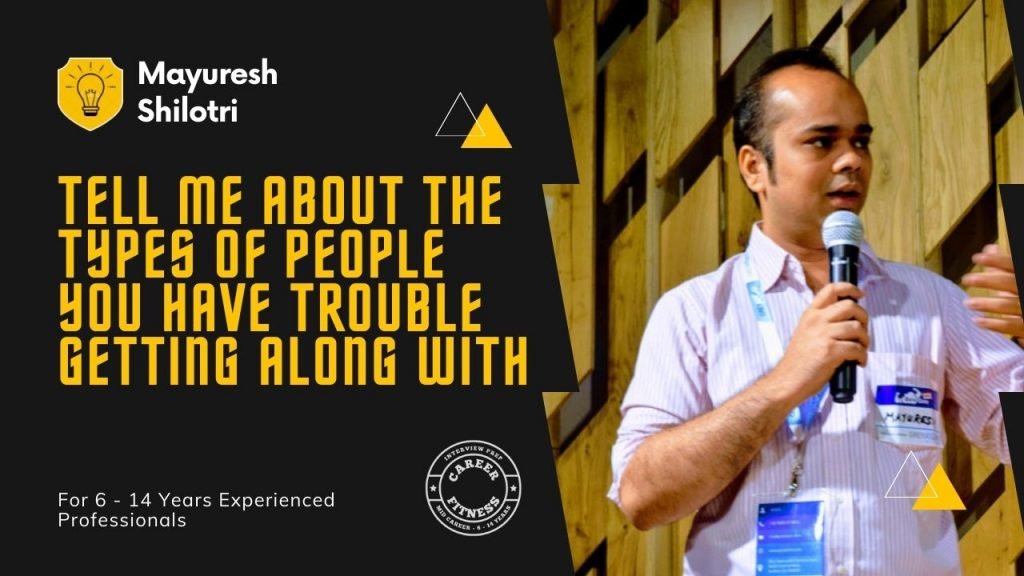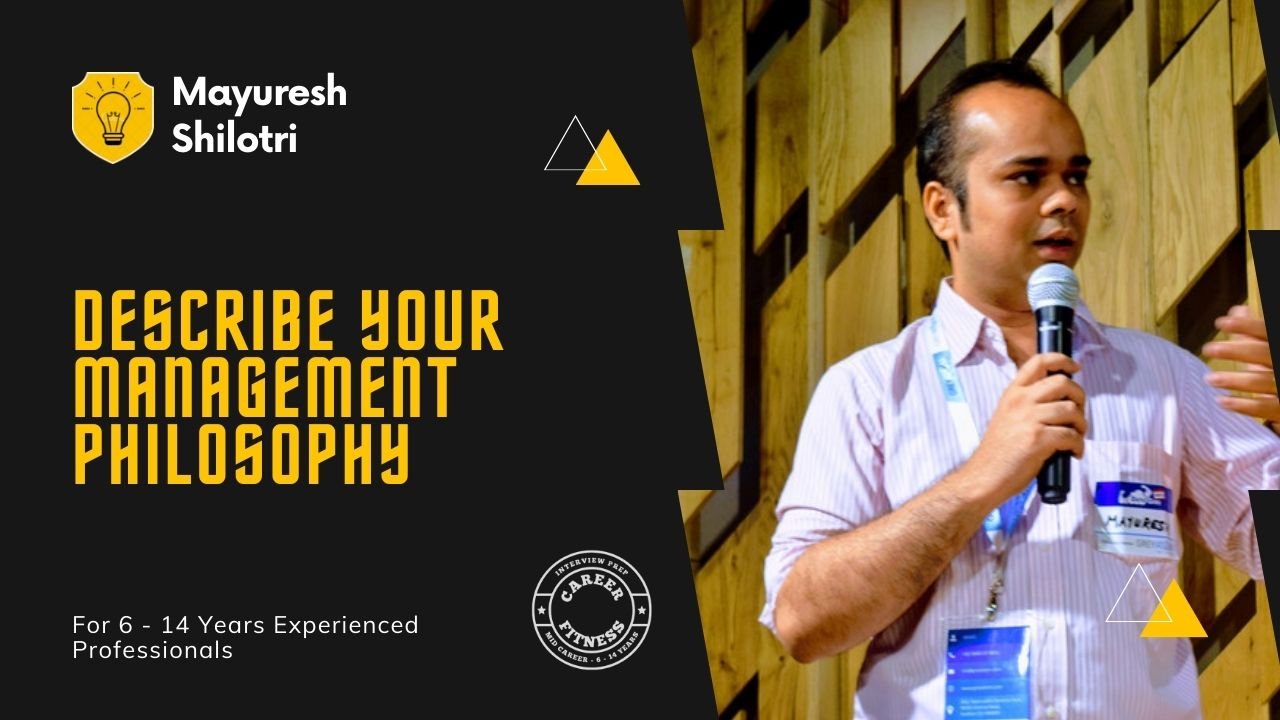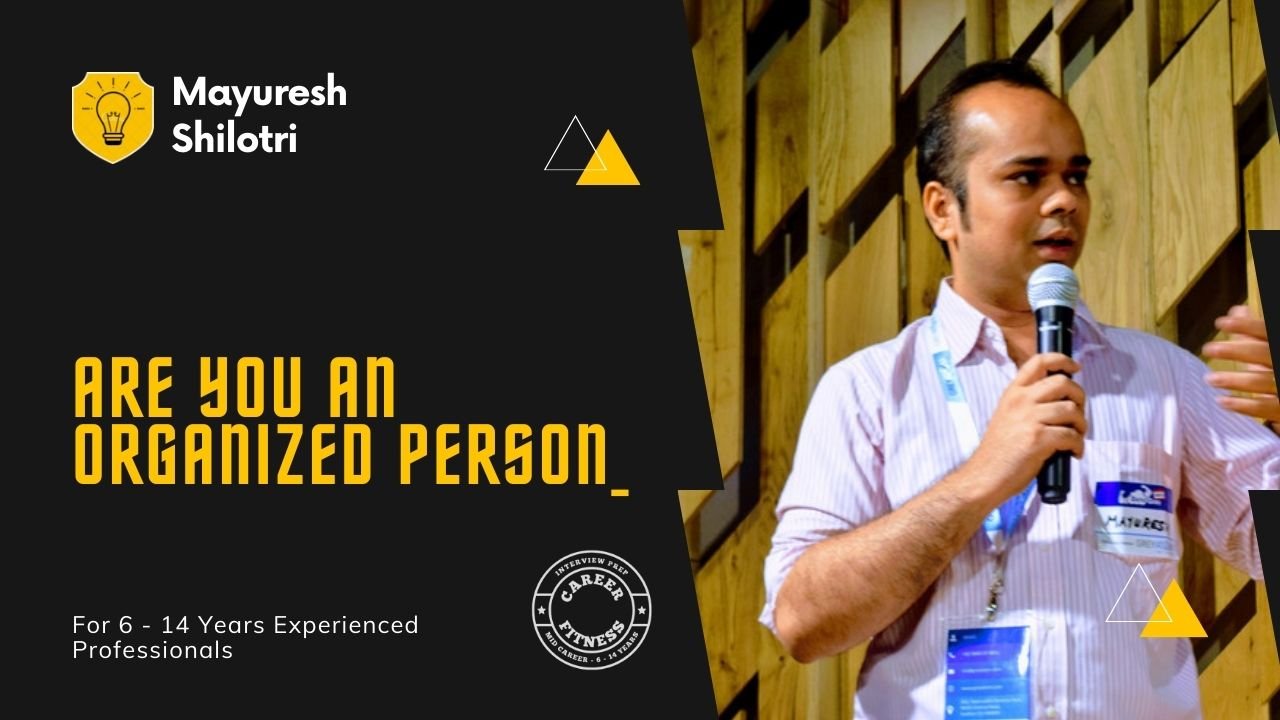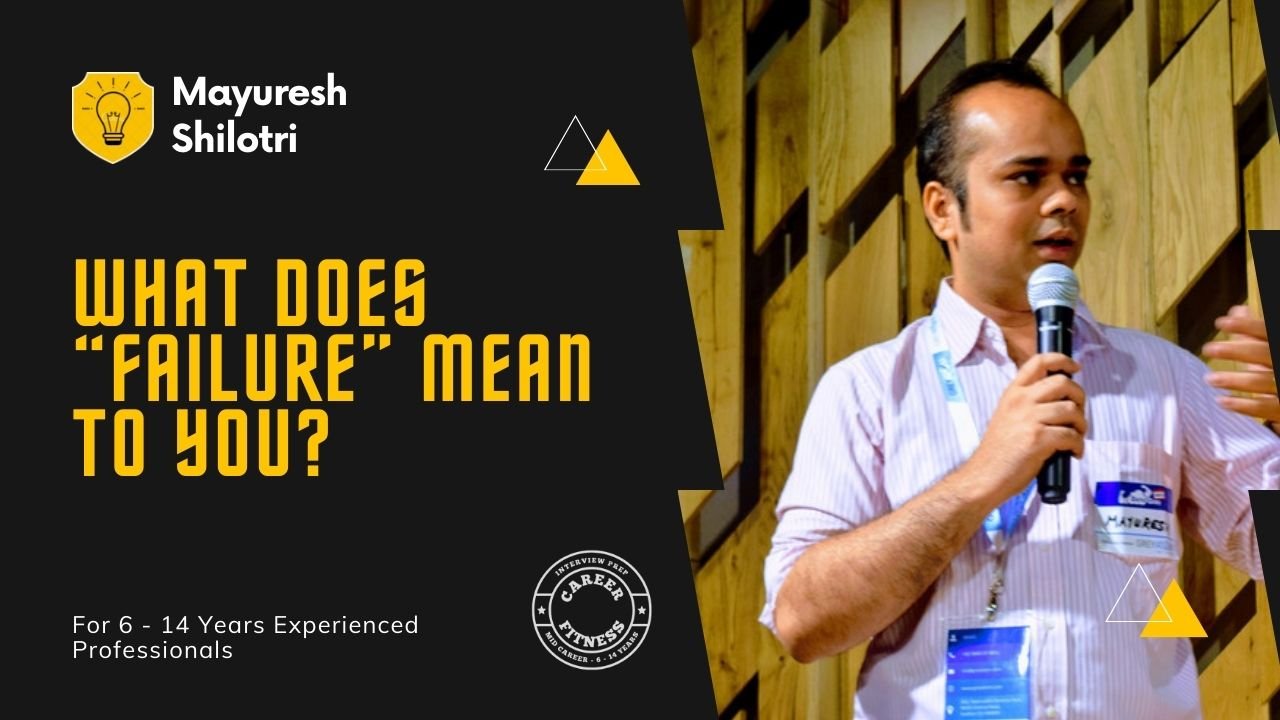Career Fitness – Job Interview Preparation Series for Mid Career Professionals (Technology, Product, Corporate, Startups)
I have conducted 1000+ interviews, not as a recruiter but as a co-founder of a company. I have been recruiting for my own company. So it is 100% ownership with very high diligence to select people at entry level laterally and even leadership hiring.
- Words:543 (Skim friendly)
- Type: Post
- Video:1
- Slides: 0
- Topic: Career Guidance
- TIME: 4 Minute
Hey guys, welcome once again! My name is Mayuresh, and welcome to the career fitness series. It’s an interview prep series for mid-career professionals from six years to 14 years experience bracket. And what we do in the series is we take a question every episode so let’s see what questions for today.
What type of people do you have trouble getting along with?
You’re going to have this variant of this particular question, and essentially it is about trying and understanding if your personality has really any kind of rough edges or if you are repulsive or if you just blurt out an answer more. (Career-limiting move). This is typically a question where even your interview can get aborted.
So if there is that lack of maturity, it comes out very, very clearly; it’s with this particular question.
So why is this particular question asked?
We saw for the reasons that we just mentioned; they just want to see if there are any rough edges to your personality. If you’re able to take the stress. Whether you’re ready for seniority.
The worst thing you can do in this particular question is to name a person. And why this person? Then you actually get into a monologue where you try and explain your point of view of what exactly went wrong. That’s the worst thing you can do in this particular kind of thing. So never do that.
The next worst thing that you can do is actually go to a company, a designation abstract of the person. Again, not the best response to some of these questions.
So I think you really need to understand what you really need to communicate.
- No one is a perfect employee.
- You are not a perfect team member.
- And there is no perfect boss.
So I think this whole concept of something absolutely perfect – doesn’t really exist. You have to essentially get along with people. Make amends, compromise, extend your hands, go the extra mile and get things done. And that’s the key thing that you want to communicate. However you choose to communicate, these words can be yours. Style can be yours. You can take and do it with an element of example. All of that is possible, but just make sure this is a common sentiment that you are communicating.
When you’re looking at a team member, a peer, boss or subordinate – what you listen to looking out for is three things.
- Competence
- Cultural fit
- Team dynamics.
What it essentially means is that a person knows what he or she is doing and is capable and completely competent with that particular thing.
Of course, the person is a fit from a cultural standpoint. Obviously, a person is not one was an obvious troublemaker.
And the third is that person does not necessarily disrupt the team dynamics. The second or third points are slightly qualitative, but you need to essentially be able to contextualise it and establish it in some form or the other here. You can take examples whichever way it is, but just try and establish what a human being in the workplace looks like and how you quantify that person.
So as long as that person has an alignment, the moral compass is in the right direction, has the competency and is a team builder.
For the given job, role in a finance role in human resources, product role in the design and rolling any other team on the technology side of things, as long as they’re aligned with what the larger team wants to achieve. They have the moral compasses fine. They’re not sabotaging you. That’s the absolute thing. You know what they’re doing competencies in place and their team builders, they’re able to build people around them not necessarily as designated leaders, team leaders or managers, but they’re able to anchor people. And that’s the important thing.
As long as you find these things that people – we are good to go. And you’re able to strike meaningful working relationships. So you need to make sure that you are looking for the same things in the people and you are also one of them. You are one who can strike relationships in a meaningful way and are looking for still strong relationships.
The last important thing over here is – Gel in. Especially if you’re making a move which is NOT lateral but vertical, in that case, you need to be able to communicate that you are not there to impose the will; to just be the boss, but you’re there to gel in, to understand and then grow within the ranks. Even though you are a designated leader, you have the authority by designation. You understand the dynamics enough that you’re able to grow gradually from within, and you have that kind of mindset, that kind of temperament.
Please don’t take this as blanket advice if you’re getting into a function which is like sales need to disrupt the house, you need to bring the house in order, and it’s complete chaos. And, of course, you need to contextually and situationally adapt and take a very different style of leadership. But more often than not, we essentially want to gel in and want to grow from within; we want to establish and then grow within the ranks even though you have designated authority.
I hope this helps. To summarise:
- Don’t name a person
- Don’t name a designation.
- Don’t name a company.
- Don’t get into the critical mode.
- Rather try to establish what kind of people you enjoy working with.
So don’t make it personal. Keep it impersonal, and make sure you communicate your points. This is one of the best questions to establish your maturity. I hope this helps. Welcome to this career fitness series. I look forward to your questions. Put your questions in the comments. I’ll make sure that I answer this in one of the upcoming sessions. Thank you so much, and bye
Career Fitness – Job Interview Preparation Series for Mid Career Professionals (Technology, Product, Corporate, Startups)
For 6 – 14 years experience bracket folks. People who are looking to meaningfully pivot the career, leapfrog into a new domain, change focus areas. Advice on how to navigate your career for stronger longer-term RoI.




